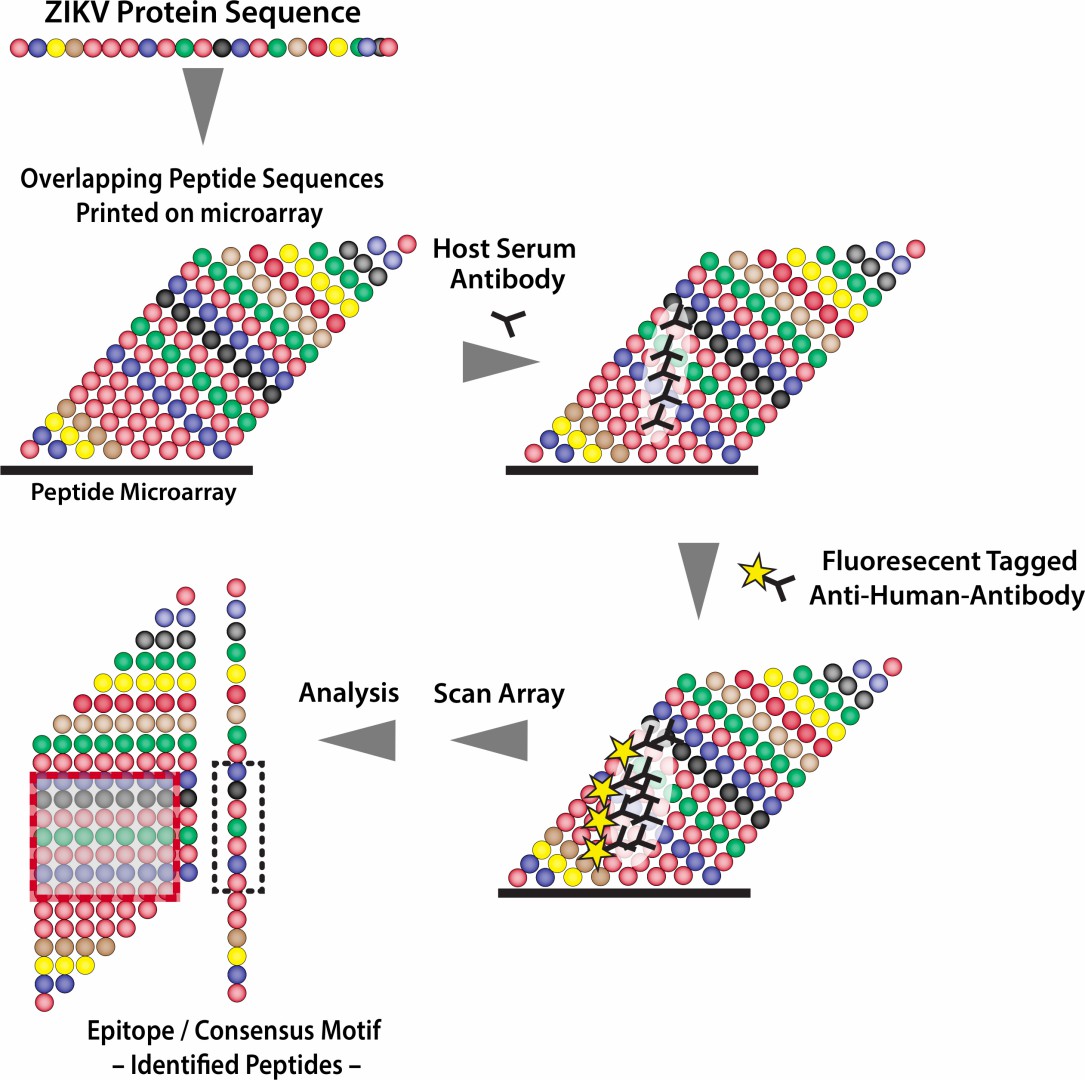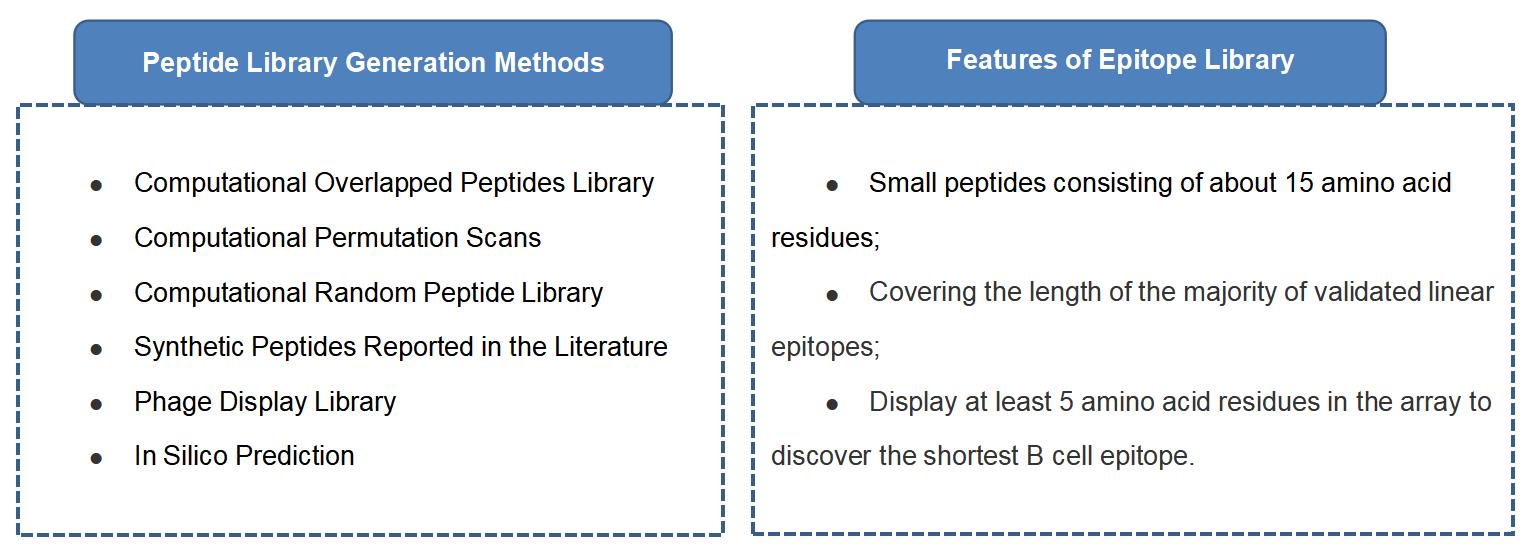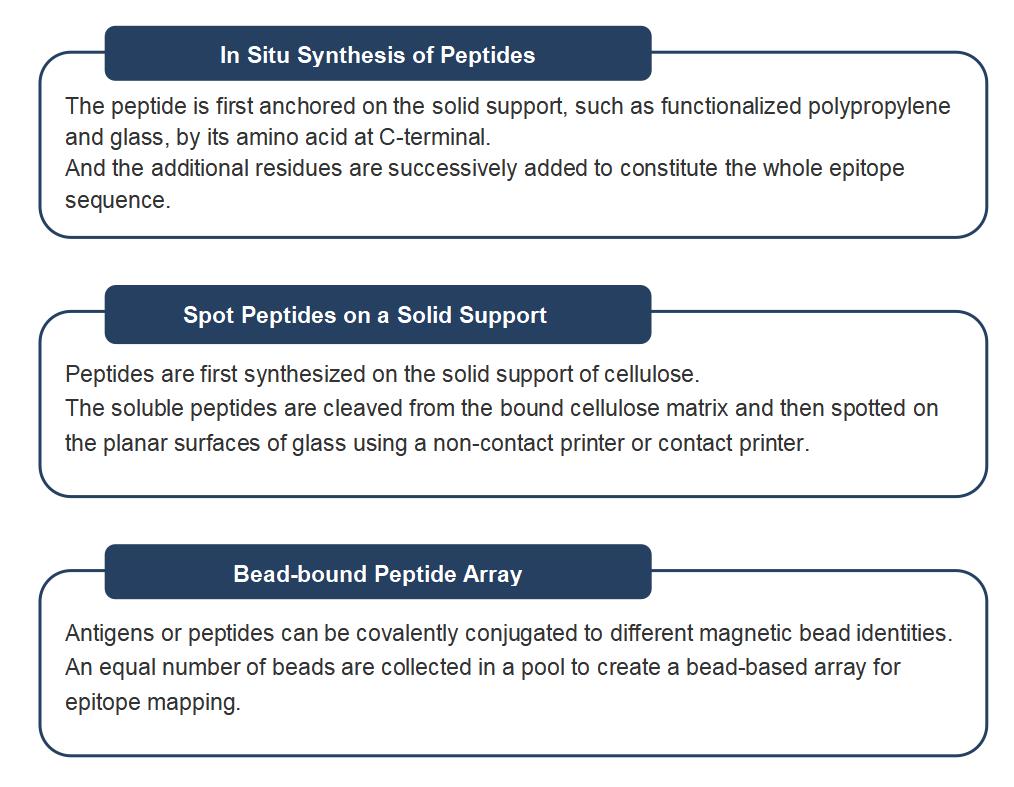B Cell-based Microarray Assay
Recent advances in peptide microarray technology provided us with a powerful method for cancer epitope analysis. Creative Biolabs offers B Cell-based microarray assay for cancer epitope analysis to satisfy the increasing interest in epitope identification in cancer antigens.
Application of Microarray Assay for Identification of B Cell Epitope
Antibodies can recognize and bind to target protein antigens via linear or conformational epitopes exposed on molecules surfaces. Peptide microarrays consist of comprehensive proteomes of pathogens or cellular mutant proteins that are widely used for B and T cell epitopes mapping and identification of targets for diagnosis and vaccine by the antibody. Sera from patients with an infectious disease or various cancers can be applied to screen peptide microarrays with a library of human proteins to identify disease-related antibodies. By analyzing the sequence of antibody-bound antigens or epitopes displayed on the array, epitope peptides showing higher reactivity can be determined.
 Fig.1 Epitope mapping using peptide microarray.1
Fig.1 Epitope mapping using peptide microarray.1
Epitope Peptide Microarray Service at Creative Biolabs
Creative Biolabs offers comprehensive solutions for B-cell epitope mapping using the cutting-edge peptide microarray technique covering the process of peptide synthesis, microarray synthesis, and epitope screening assay.
-
Peptide Library Generation
Epitope residue library consists of peptides generated from cancer protein antigens using at least one of the six methods below:

-
Peptide Microarray Synthesis

|
Methods
|
Advantages
|
|
In Situ Synthesis of Peptides
|
-
Allows the in-situ peptide microarray synthesis.
-
Reduced background signal for its inert surface.
-
Avoids the tedious peptide purification process.
-
Permits the synthesis of a large number of peptides for screening.
|
|
Spot Peptides on a Solid Support
|
-
Higher quality. Peptides can be purified and modified before immobilization.
-
Rapid. It is suitable for miniaturized array construction using the simultaneous parallel chemical synthesis of peptides.
-
High biocompatibility. It is non-toxic and inexpensive.
|
-
Microarray-based Screening Assay
Samples: Serum, plasma, and cerebrospinal fluid
Host: Diagnosed patients and antigen mixture immunized mouse or other animal models
Here presents the screening process:

As a professional service provider in antigen epitope discovery, Creative Biolabs offers comprehensive peptide microarray services to help clients identify B cell epitopes within cancer antigens with rapid and cost-effective solutions. Our customized services and robust microarray platform will contribute greatly to your project development. Please contact us for more information.
References
-
Sabalza, M.; et al. Zika Virus Specific Diagnostic Epitope Discovery. Journal of visualized experiments: JoVE. 2017, (130): 56784.
-
Whittemore, K.; et al. A General Method to Discover Epitopes from Sera. PloS one. 2016, 11(6): e0157462.
For Research Use Only | Not For Clinical Use


 Fig.1 Epitope mapping using peptide microarray.1
Fig.1 Epitope mapping using peptide microarray.1



 Download our brochure
Download our brochure

